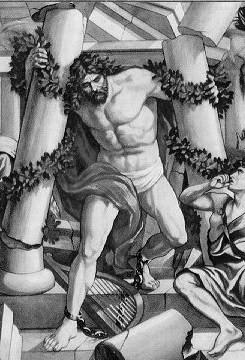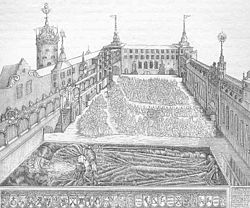
A person's last words, their final articulated words stated prior to death or as death approaches, are often recorded because of the decedent's fame, but sometimes because of interest in the statement itself. (People dying of illness are frequently inarticulate at the end, [1] and in such cases their actual last utterances may not be recorded or considered very important.) Last words may be recorded accurately, or, for a variety of reasons, may not. Reasons can include simple error or deliberate intent. Even if reported wrongly, putative last words can constitute an important part of the perceived historical records [2] or demonstration of cultural attitudes toward death at the time. [1]
Contents
- Chronological list of last words
- Pre-5th century
- 5th to 14th centuries
- 15th century
- 16th century
- 17th century
- 18th century
- 19th century
- 20th century
- 21st century
- Ironic last words
- Independently notable last words
- See also
- Notes
- References
- Further reading
- External links
Charles Darwin, for example, was reported to have disavowed his theory of evolution in favor of traditional religious faith at his death. This widely disseminated report served the interests of those who opposed Darwin's theory on religious grounds. However, the putative witness had not been at Darwin's deathbed or seen him at any time near the end of his life. [3]
Cultural traditions around the world ascribe special significance to words uttered at or near death, [4] but the form and content of reported last words may depend on cultural context. There is a tradition in Hindu and Buddhist cultures of an expectation of a meaningful farewell statement; Zen monks by long custom are expected to compose a poem on the spot and recite it with their last breath. In Western culture particular attention has been paid to last words which demonstrate deathbed salvation – the repentance of sins and affirmation of faith. [3]




























